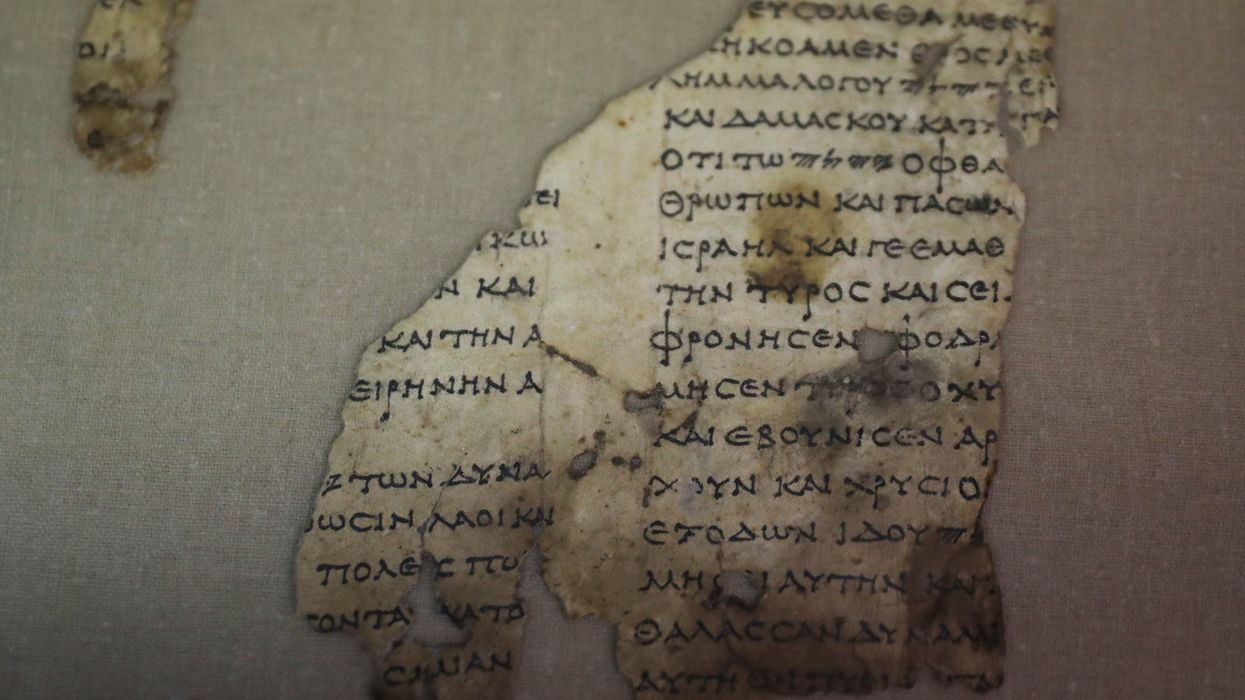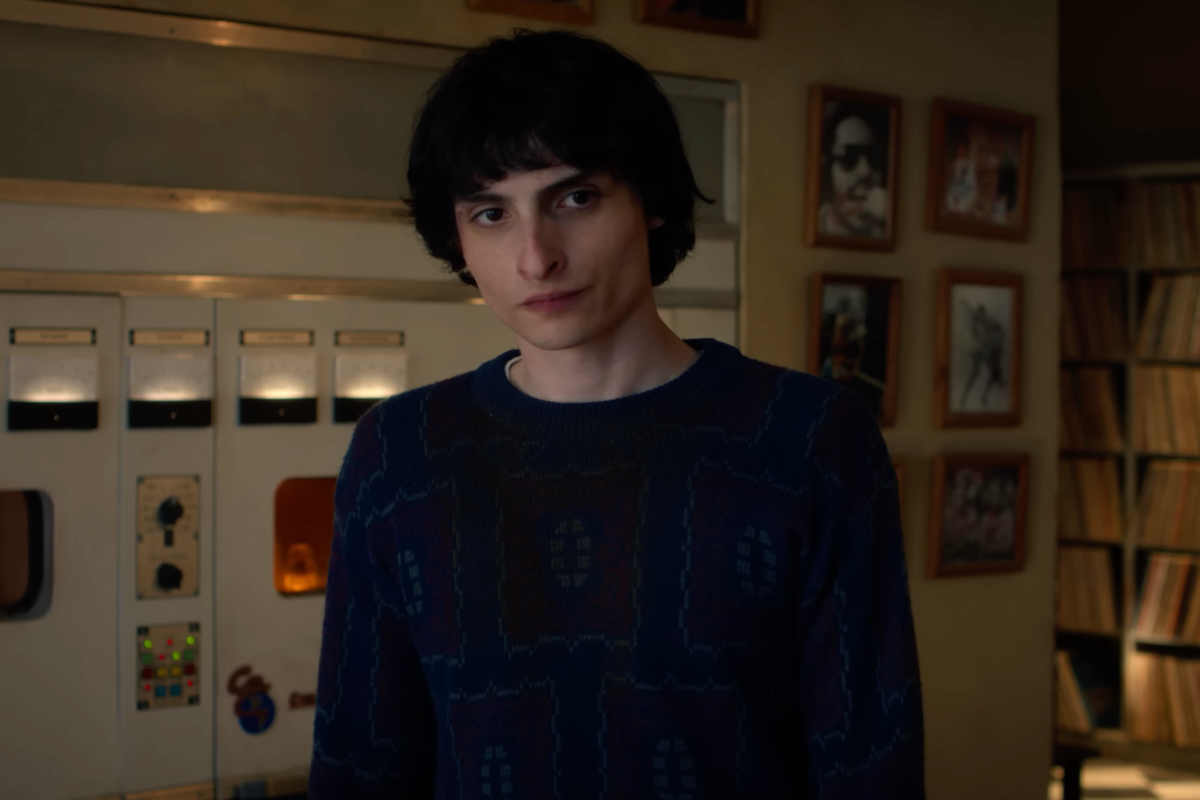Science & Tech
Harriet Brewis
Sep 18, 2025
New Dead Sea scrolls found in desert cave
CBC English / VideoElephant
After hundreds of years of trying, experts have finally managed to read a series of iconic, ancient scrolls – with a little help from AI.
More than 800 of these parchments were retrieved from the remains of Herculaneum, an ancient Roman city in Italy which was buried under volcanic ash and rock following the eruption of Mount Vesuvius in 79 AD.
The scrolls were discovered in the 1700s, when experts chanced upon the town which had lain, untouched for centuries, under its blanket of debris.
However, whilst the scrolls were remarkably well preserved, they were also illegible having been turned into lumps of carbonised ash by the heat of the eruption.
That was, until a team of scientists launched a competition in March last year titled The Vesuvius Challenge.
The challenge invited individuals and teams from diverse academic backgrounds to find new ways to decipher the ancient texts, which cannot be opened without severely damaging them.
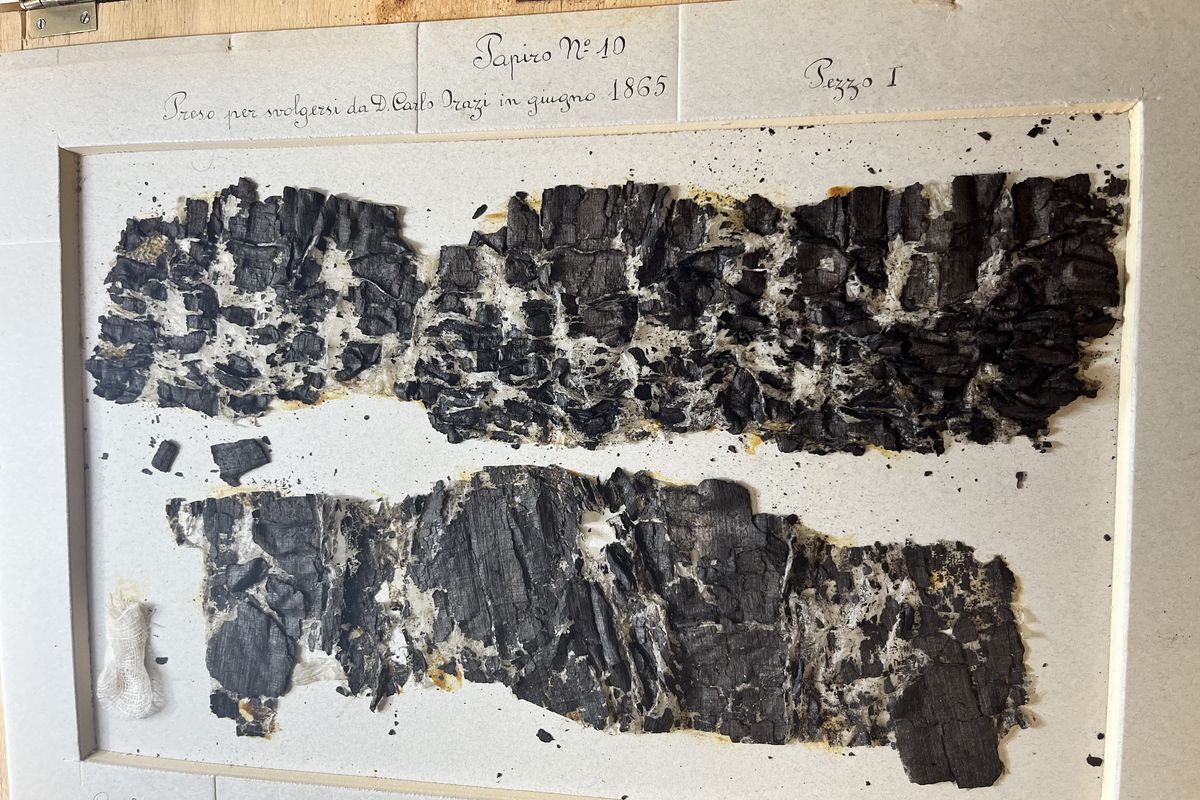
The contest, which was co-launched by computer scientist Brent Seales and entrepreneurs, Nat Friedman and Daniel Gross, offered a combined total of $1 million (around £791,570) in prize money to successful participants.
To facilitate this monumental task, a selection of scrolls were imaged at the Diamond Light Source particle accelerator near Oxford. High-resolution CT scans of these were then released to contestants.
At last, nine months later, in December 2023, history was made.
“Finally, after 275 years, we can begin to read the scrolls,” Seales and his colleagues wrote in an announcement about the achievement.
“The thoughts of our ancestors, locked in mud and ash for 2000 years, hidden in darkness — now, with the light of a worldwide effort shining upon them, finally seen again.”
The winners of the $700,000 (£554,380) grand prize were Youssef Nader, an Egyptian biorobotics grad student based in Berlin, Luke Farritor, a 21-year-old SpaceX intern from Nebraska, and Julian Schilliger, a Swiss robotics student at ETH Zürich.
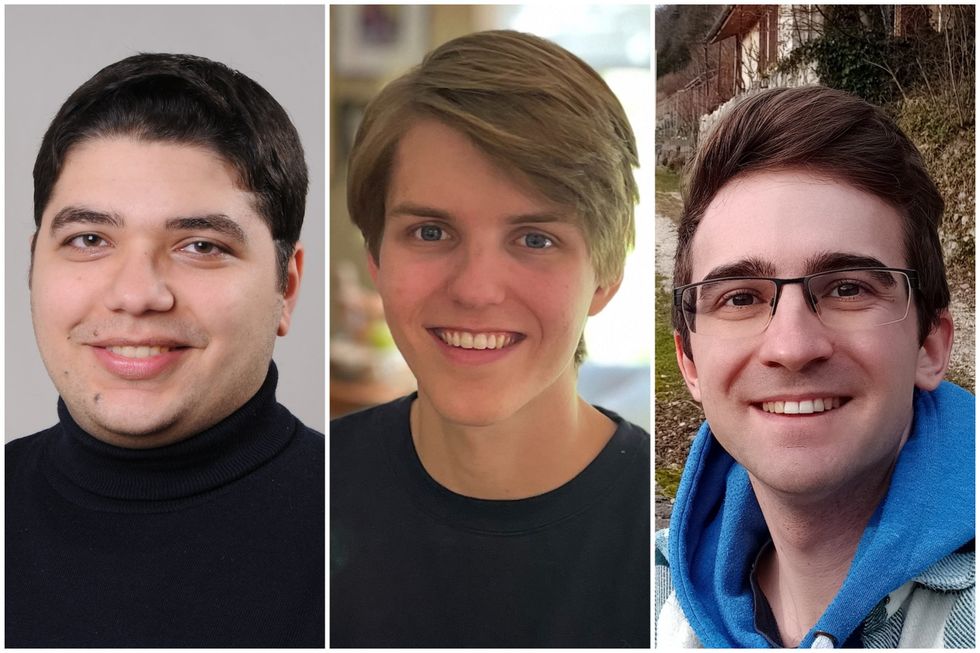
Together, they smashed the goal set by the Vesuvius Challenge at its launch: to digitally unravel four passages of 140 characters each, with at least 85 per cent of characters recoverable.
The competition’s founders admitted that they had strong doubts that this was even possible: “Most of us on the organizing team assigned a less than 30 per cent probability of success when we announced these criteria,” they confessed.
However, not only did Nader, Farritor and Schilliger fulfill this ambition, but they trumped it: adding another 11 columns of text, amounting to more than 2,000 characters in total.
So what do the scrolls say?
Well, whilst the prize-winning trio did amazingly well to lay out whole sections of the ossified text, there’s still a lot of work to be done in actually reading and translating it.
“To date, our efforts have managed to unroll and read about 5 per cent of the first scroll,” Seales and co say on the Challenge’s website.
“Our eminent team of papyrologists has been hard at work and has achieved a preliminary transcription of all the revealed columns. We now know that this scroll is not a duplicate of an existing work; it contains never-before-seen text from antiquity.
“The papyrology team are preparing to deliver a comprehensive study as soon as they can. You all gave them a lot of work to do!”
Nevertheless, they have been able to confirm that the general subject of the philosophical text is pleasure.
In two snippets, taken from two consecutive columns of the scroll, the author muses on whether/how the availability of goods, such as food, can affect the pleasure which they provide.
“We do not right away believe things that are scarce to be absolutely more pleasant than those which are abundant,” the author writes. And yet, is it easier for us naturally to do without things that are plentiful? “Such questions will be considered frequently,” they add.
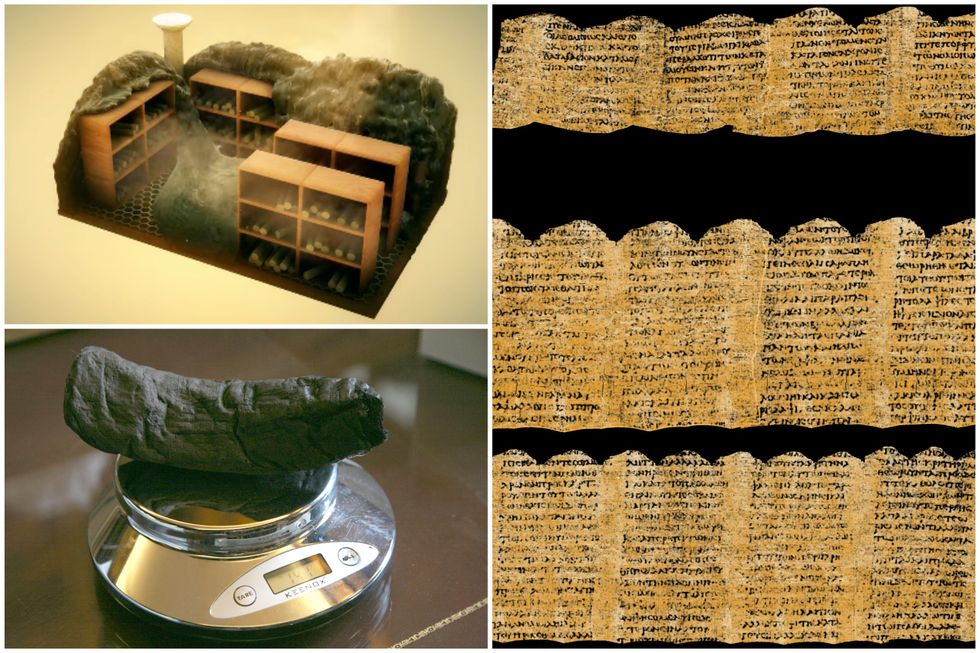
The experts have also picked out names from the parchment, belonging to a philosopher called Philodemus and a man, most probably a musician, called Xenophantos.
Richard Janko, a classics professor, who has read the text, mused on its contents, asking: “Is the author Epicurus' follower, the philosopher and poet Philodemus, the teacher of Vergil? It seems very likely.
“Is he writing about the effect of music on the hearer, and comparing it to other pleasures like those of food and drink? Quite probably.
“Does this text come from his four-part treatise on music, of which we know Book 4? Quite possibly: the title should soon become available to read.
“Is the Xenophantus who is mentioned the celebrated flute-player, or the man famous in antiquity for being unable to control his laughter, or someone else entirely?
“So many questions! But improvements to the identification of the ink, which can be expected, will soon answer most of them. I can hardly wait.”
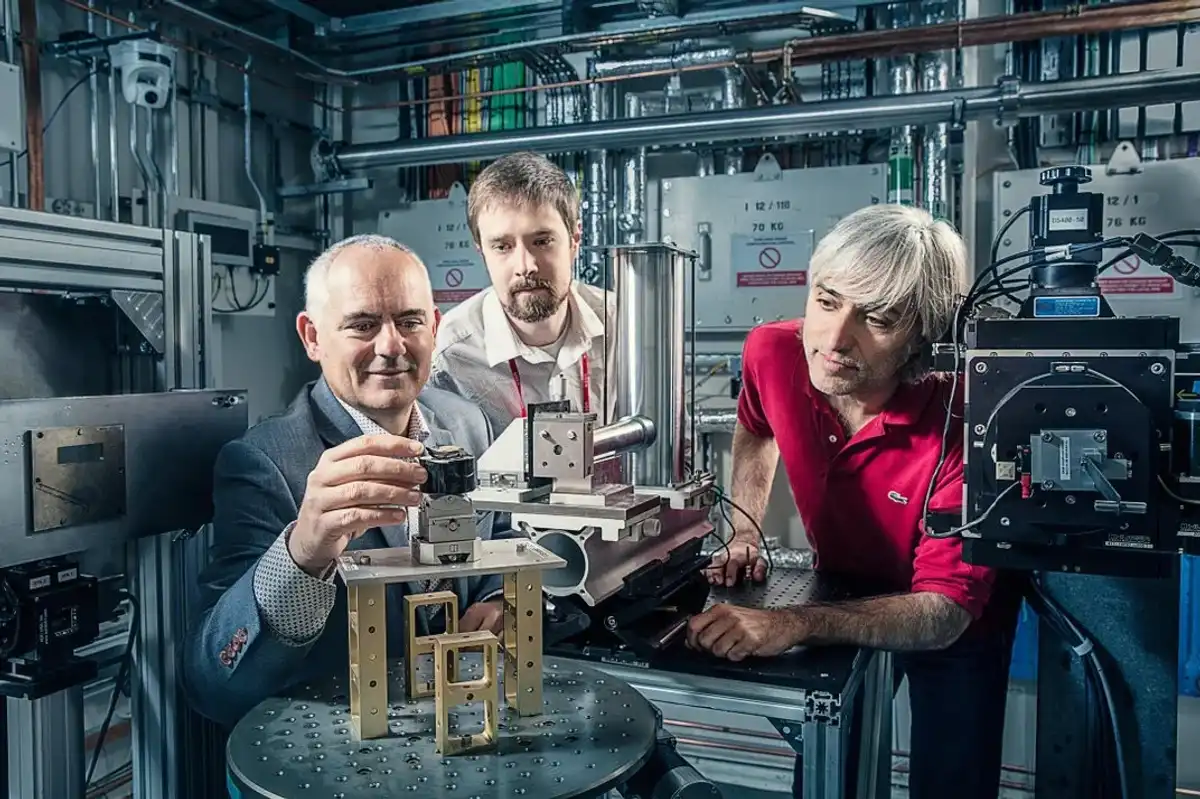
Ultimately, the Vesuvius Challenge pros believe that the text is, essentially, “a 2,000-year-old blog post about how to enjoy life”.
“We can expect many more works from Philodemus in the current collection, once we’re able to scale up this technique,” they add on their website.
“But there could be other text as well — an Aristotle [dialogue], a lost history of Livy, a lost Homeric epic work, a poem from Sappho — who knows what treasures are hidden in these lumps of ash.”
This article was originally published on 7 February 2024
Sign up for our free Indy100 weekly newsletter
Have your say in our news democracy. Click the upvote icon at the top of the page to help raise this article through the indy100 rankings
Top 100
The Conversation (0)
